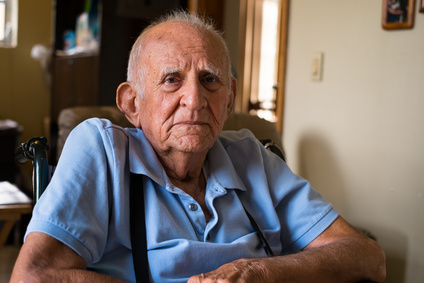 At the end of Matthew 11 Jesus has been working so hard it is almost unbelievable. Teaching, healing and listening to people all day. Staying up many times all night in prayer. Often he didn’t even stop to eat. After months of this and hundreds of astonishing miracles he finds that the vast majority simply don’t believe his message.
At the end of Matthew 11 Jesus has been working so hard it is almost unbelievable. Teaching, healing and listening to people all day. Staying up many times all night in prayer. Often he didn’t even stop to eat. After months of this and hundreds of astonishing miracles he finds that the vast majority simply don’t believe his message.
You might think that Jesus would be discouraged. Is he about to break under the stress and obvious failure of all his hard work? Then at verse 25 he stops, looks up to heaven and begins to praise God in sheer joy. How is this possible?
Next he gives us one of the most profound teachings in all of the Bible. He does it by using imagery from everyday life: oxen and yokes. The huge problem for us is that we no longer have any experience of these things. They remove us from Jesus’ point, exactly the opposite of what they did for his first students.
The ox and yoke were both symbols of work. This is because most people’s everyday work involved oxen and yokes. A yoke is just the thing you put on the ox’s shoulders so it can pull a plow or a cart.
What image represents everyday work for us now? My answer is: a To Do List. This is the symbol of the burdens and tasks we have before us each day. Almost everyone uses one at least some of the time.
So, here is a modern reworking of what Jesus was trying to teach his disciples all those years ago. When almost anyone would have been broken from overwork and apparent failure, Jesus stood up and worshiped, spontaneously full of joy. Then he said,
“My Father has given me everything! He truly knows me and I know him. In fact, it is obvious I am the only one who actually knows Him. But my one desire is to teach you what He is like so you can know Him too.
Come to me all of you who are worn out with too much to do. I will set you at rest. Take my To Do List upon you. We will do it together and you will learn to work like me. I am gentle and humble in my heart and you will find rest down to the depths of your soul. Because my work is easy and my list is so light. “
Can this really be true? I am stunned by his words just reading them again. But yes. It is true.
Jesus has a list of stuff to do? Yes.
How can adding His list to my already way-too-busy life possibly result in me finding rest?!
Because He will be right there next to you doing it all with you! Imagine going through a to do list with Jesus, literally working on the same things together, having Him show you how it is done. What could you accomplish if His kind of power were available?
This is what he is saying. This is the secret of His life. He didn’t go around doing hard stuff he hated because he knew he was supposed to. No. He actually knew God. He joined into the work God was doing and because of their deep working relationship together he was given everything, All Power. The most difficult work imaginable was then joy and rest to him.
His great desire is to teach you and me this secret, to train us to work with Him and share His power, joy and rest.









